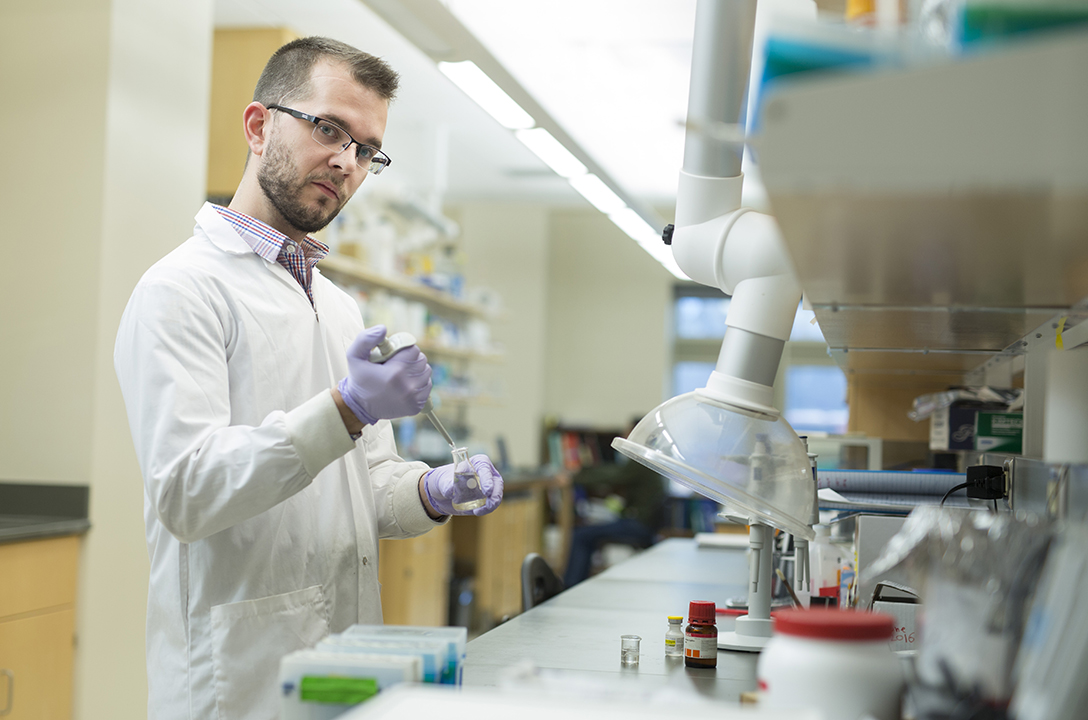
U of S study aims to improve depression treatment
University of Saskatchewan research may hold promise for producing newer, faster-acting antidepressants using a protein naturally produced by the brain.
By Federica GiannelliCurrent medications work on only about half of patients and take around one month to work, often with significant side effects.
“There is an urgent need for new antidepressants that work more quickly and in a higher proportion of patients,” said neuroscience professor Lisa Kalynchuk.
Presented at an international conference, Kalynchuk’s research in an animal model shows that a protein called reelin has an antidepressant effect in just one day. Her PhD student Kyle Brymer has been the first to demonstrate this protein can also reverse structural changes in the brain caused by depression.
“This research could change how depression is treated,” said Kalynchuk. “If research and trials go well on rats, our work may eventually lead to developing the first new drug in 50 years with a new way of acting in the body.”
Pharmacy professor Hector Caruncho, who teams up with Kalynchuk on her project, found that people with mental illness such as schizophrenia and depression have low quantities of reelin in their brains. This deficiency affects the release of chemicals that regulate communication between neurons, and affect the ability of neurons to connect, change and adapt over time in response to experience.
Funded by the federal agency NSERC and Saskatchewan Health Research Foundation, the team aims to find out whether returning reelin to normal levels could work as an antidepressant in rats.
By injecting stress hormones, Brymer simulated depression in rats. Then, during trials, he infused reelin directly into the brain of the rats.
Brymer found that reelin acted faster than current antidepressants on most of the rats. He also found evidence that the protein could still affect the brains of these animals up to a week after just one infusion. This may set reelin apart from most antidepressants, which have to be taken daily by patients.
But the researchers caution that more long-term research on rats is needed to better determine how long reelin is effective and its potential side effects. And development of a drug for humans is still a long way off.
The team is now conducting further testing on rats to investigate less invasive but equally effective ways to treat with reelin.
The project is part of the U of S Neuroscience Cluster which brings together neuroscientists to enhance research collaboration in the new state-of-the-art health sciences building.
“I became interested in this research because my family has a history of mental illness,” said Brymer. “I want to find new ways of alleviating the distress caused by mental disorders that I have witnessed firsthand.”
One in five Canadians will experience depression in their lifetime, the Canadian Mental Health Association says.
“Novel antidepressants are a hot topic in research right now,” said Brymer. “One of the reasons why we are dedicating lots of time to our project is to get rid of the stigma around mental illness.”
Federica Giannelli is a graduate student intern in the U of S research profile and impact unit.
This article first ran as part of the 2017 Young Innovators series, an initiative of the U of S Research Profile and Impact office in partnership with the Saskatoon StarPhoenix.

